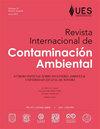杏醋发酵工艺的优化
IF 0.4
4区 环境科学与生态学
Q4 ENVIRONMENTAL SCIENCES
引用次数: 0
摘要
采用单因素试验和正交试验相结合的方法,研究了杏的最佳发酵条件。实验结果表明,最佳酒精发酵条件为:糖度a9%,酵母接种量0.7%,发酵温度30℃。酒精度可达7.56%;最佳醋酸发酵条件为:酒精度为7%,醋酸杆菌接种量为0.8%,发酵温度为32℃,发酵时间为7d,总酸含量为6.78g/100mL。本文章由计算机程序翻译,如有差异,请以英文原文为准。
Optimization of Fermentation Process for Apricot Vinegar
To study the optimal fermentation conditions of Prunus armeniaca L. (apricot), single factor experiments and orthogonal experiments were implemented. The experimental results demonstrate that the optimum alcoholic fermentation conditions are: sugar degree a 9%, inoculation quantity of yeast at 0.7%, fermentation temperature at 30 ºC. The alcohol degree could reach 7.56%; the optimum acetic fermentation conditions are: alcohol degree at 7%, inoculation quantity of acetic acid bacillus at 0.8%, fermentation temperature at 32 ºC, fermentation time at 7 days, and the total acid content could be obtained as 6.78 g/100 mL. Under such conditions, the fruit vinegar has rich Prunus armeniaca L. flavor and pure taste.
求助全文
通过发布文献求助,成功后即可免费获取论文全文。
去求助
来源期刊

Revista Internacional De Contaminacion Ambiental
ENVIRONMENTAL SCIENCES-
CiteScore
0.90
自引率
16.70%
发文量
59
期刊介绍:
En esta revista se aceptan para su publicación trabajos originales y de revisión sobre aspectos físicos y químicos de la contaminación, investigaciones sobre la distribución y los efectos biológicos y ecológicos de los contaminantes; así como sobre tecnología e implementación de nuevas técnicas para su medida y control; también son aceptados estudios sociológicos, económicos y legales acerca del tema. Se publicarán los escritos que mediante arbitraje de especialistas y a juicio del Consejo Editorial tengan el nivel y la calidad adecuados para ello y su contenido será responsabilidad única de los autores. La Revista Internacional de Contaminación Ambiental es de periodicidad trimestral y se publica los días 1 de febrero, mayo, agosto y noviembre.
 求助内容:
求助内容: 应助结果提醒方式:
应助结果提醒方式:


